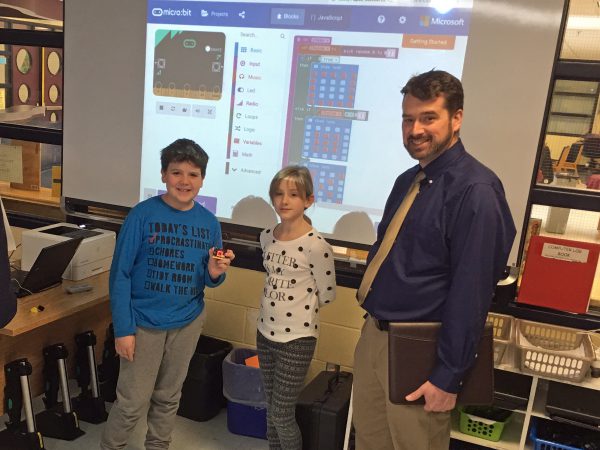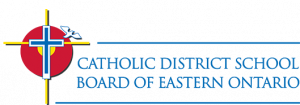CDSBEO Technology Enabled Learning and Teaching
The Catholic District School Board of Eastern Ontario Curriculum Department continues to build capacity with both teachers and students to implement Science Technology Engineering and Mathematics (STEM) as well as Coding initiatives system-wide. The Board has been on a journey over the past few years to move from traditional ways of using technology in instruction and learning, to leveraging 21st century tools. Coding requires computational thinking, which is embedded throughout the Ontario Curriculum. Because of this, educators can incorporate code into learning for all curriculum areas.
Andrew Lovett, Technology Enabled Learning and Teaching Consultant, presented information to the Board about CDSBEO’s STEM initiatives, and how technology enabled learning is assisting teachers to explore and learn various ways to implement Coding/STEM into classroom learning.
“The Ministry of Education is currently focused on students developing Michael Fullan’s six “C’s” of education: character, citizenship, communication, critical thinking and problem solving, collaboration and creativity,” began Mr. Lovett. “Cloud based learning and coding, or computational thinking, provides an amazing opportunity for students to develop 21st century skills, and CDSBEO has introduced an amazing capacity building series that will bring Coding and STEM to all of our elementary classrooms.”
CDSBEO teachers are focused on developing rich lessons for students. Technology is embedded throughout the learning journey, where it can enhance or enable learning, foster student engagement, and equip students with 21st century competencies. The Coding/STEM initiatives promote student collaboration, learning, technological thinking, and exciting learning opportunities for the students.
“The CDSBEO Curriculum Department has devised a comprehensive Technology Enabled Learning and Teaching Strategic Plan that builds on the past four years of work in this area. The plan will place Coding/STEM at the forefront of our system-wide capacity building initiatives this year,” continued Mr. Lovett.
The Board will host three days of capacity building and learning around Coding/STEM where two teachers from each elementary school will participate in a full day of learning. The initiative is designed to enable innovators and early adopters to infuse these initiatives into their classroom learning experiences. The teachers who participate will then share these new strategies with other teachers and students at their respective schools.
In December, 15 teachers attended a special day of professional learning around these tools, and as a result, several school communities throughout the Board are embracing new learning opportunities through STEM and Coding. Teachers in several schools have begun to design learning tasks for students using Minecraft EDU, Scratch, Makey Makey and the Microbit.
The Board will host the Board-wide elementary professional development opportunities for teachers in March. STEM kits will be provided to each school at the sessions, which include ten Microbit programmable computers.
“This presentation has certainly provided examples of some very exciting learning opportunities that are taking place within our schools, and we really look forward to seeing these initiatives grow,” noted Chair Todd Lalonde.

